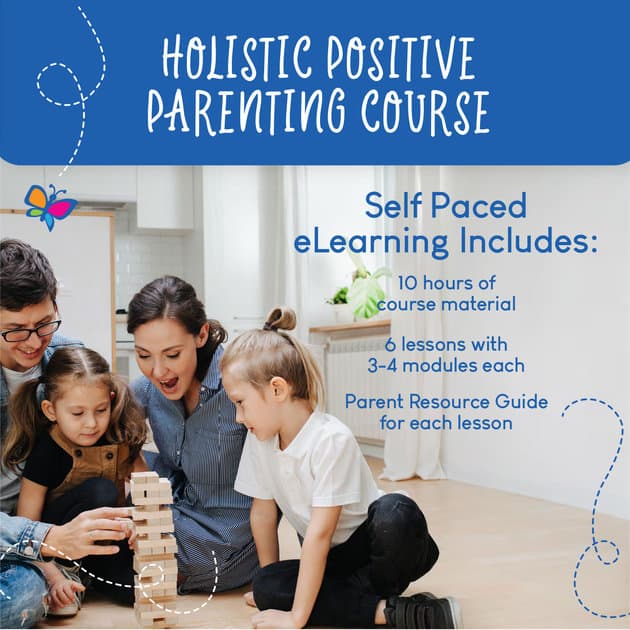Holistic involves an approach based on child development that puts parents in the role of a child’s first teacher encompassing all developmental domains, including physical, language, intellectual and social-emotional. It also includes the whole family supporting each other and promoting each member’s physical health and psychological well-being. The family interacts with each other by engaging in mutually enjoyable activities to promote connectedness, resilience, and each family member’s creativity and personal development.
Positive includes teaching and reinforcing social-emotional skills that improve cooperation, respect, open communication, independence, and self-control. It focuses on using mutual problem-solving to resolve conflicts and teaching the necessary skills to ensure the solution’s success. Finally, it involves providing age-appropriate structure and boundaries to ensure safety, cooperation, and personal achievement.
How does the course work?
The course uses a self-paced eLearning approach providing a logical flow of information and skill development. The 10-hour course includes 6 lessons with 3 to 4 modules each, and a Parent Resource Guide for each lesson that includes additional information expanding on the lesson material, valuable tools to implement the recommended strategies and activities, and checklists to monitor your progress and keep you on the path to success.
- The course starts by equipping parents with the latest information on the parent-child relationship, child development, and neuropsychological skill building.
- Next comes practical suggestions for building a family organization to promote cooperation and shared responsibility.
- That is followed by helping children and parents develop and improve communication skills, problem-solving, and emotional regulation that promotes cooperation and self-control and aids in conflict resolution. It also provides parents with the tools necessary to provide appropriate structure and encouragement to ensure that children and teens practice and use their skills effectively and appropriately.
- Then, suggestions and tools are provided to promote fun and positive family activities that promote connectedness and self-esteem. Additional information and tools are provided to enable all family members to improve physical fitness, healthy eating, and restful sleep. Finally, the last lesson provides information and tools on the appropriate and safe use of digital devices and engagement with cyberspace.


